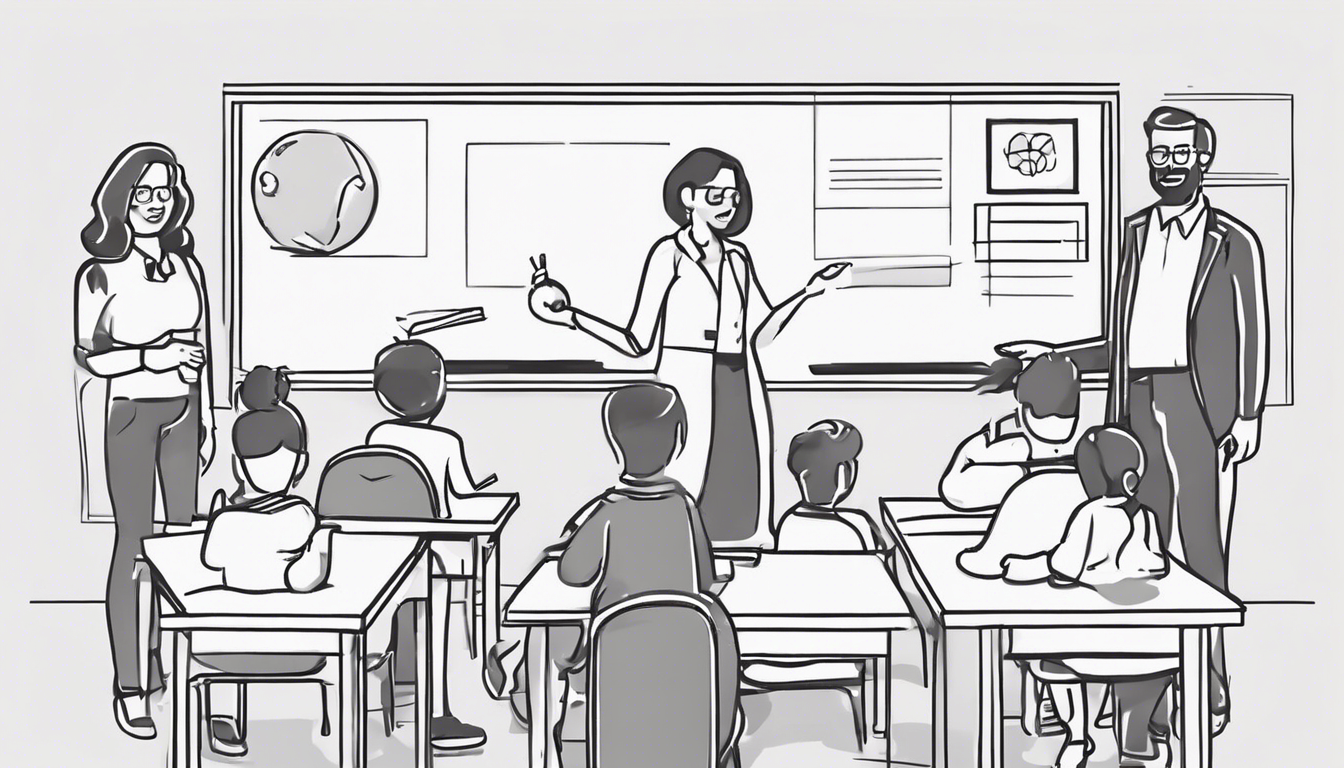Introduction
Speaking opportunities for students are like opening a treasure chest of skills and experiences. It’s not just about talking; it’s about unlocking the potential within each student to communicate effectively, confidently, and persuasively. These opportunities provide a platform for students to shine, to express their thoughts, and to engage with their peers in meaningful ways.
Defined as chances for students to speak in various settings, speaking opportunities encompass a wide range of activities from classroom presentations to public speaking competitions. These experiences are crucial for the holistic development of students, helping them build essential skills that go beyond the academic realm. In a world where communication is key, fostering speaking skills early on is like giving students a superpower to navigate through life with confidence.
The ability to speak effectively is not just a desirable trait; it’s a necessity in today’s interconnected world. Students who excel in speaking opportunities often find themselves better equipped to handle challenges, express their ideas clearly, and connect with others on a deeper level. This essay explores the significance of speaking opportunities for students, delving into the benefits, challenges, strategies, and future trends in this exciting realm.
Benefits of Speaking Opportunities

One of the primary benefits of speaking opportunities for students is the enhancement of their communication skills. By engaging in various speaking activities, students learn how to articulate their thoughts, structure their ideas coherently, and convey messages effectively. These skills are not only valuable in academic settings but also in future professional endeavors.
Moreover, participating in speaking opportunities boosts students’ confidence levels significantly. As they overcome the fear of speaking in front of others, students develop a sense of self-assurance that extends beyond the realm of public speaking. This newfound confidence often translates into other areas of their lives, empowering them to take on challenges with a positive mindset.
Additionally, engaging in speaking opportunities hones students’ public speaking abilities. Through practice and exposure to different speaking formats, students learn how to captivate audiences, structure persuasive arguments, and handle questions effectively. These skills are invaluable in preparing students to become effective communicators and leaders in the future.
Types of Speaking Opportunities

Speaking opportunities come in various forms, each offering unique benefits to students. Classroom presentations, for instance, provide students with a platform to showcase their knowledge, creativity, and communication skills in front of their peers and teachers. These presentations help students build confidence and improve their ability to convey information effectively.
Debates and discussions are another common type of speaking opportunity that encourages students to engage in critical thinking, articulate their opinions, and defend their viewpoints. These activities not only enhance students’ communication skills but also foster a spirit of healthy debate and intellectual curiosity among participants.
Public speaking competitions offer students a chance to compete against their peers from different schools or regions, putting their public speaking skills to the test in a competitive environment. These competitions challenge students to think on their feet, present their ideas persuasively, and handle pressure with grace. Participating in such events can be a transformative experience for students, boosting their confidence and honing their public speaking abilities.
Challenges Faced by Students

Despite the numerous benefits of speaking opportunities, students often face challenges that can hinder their participation and performance. One common challenge is the fear of public speaking, known as glossophobia. Many students experience anxiety, nervousness, and self-doubt when speaking in front of an audience, which can impact their ability to communicate effectively.
Another challenge is the lack of preparation time. Students juggling multiple academic and extracurricular commitments may struggle to find adequate time to prepare for speaking opportunities, leading to last-minute stress and subpar performances. Proper time management and planning are essential to overcome this challenge and ensure students are well-prepared for speaking engagements.
Furthermore, overcoming nervousness is a significant hurdle for many students participating in speaking opportunities. The pressure of performing well, the fear of judgment, and the adrenaline rush before speaking can all contribute to heightened nervousness. Developing strategies to manage nerves, such as deep breathing exercises, visualization techniques, and practice sessions, can help students overcome this challenge and deliver confident performances.
Strategies to Encourage Student Participation

To foster student participation in speaking opportunities, creating supportive environments is crucial. Teachers and mentors should cultivate a safe and encouraging space where students feel comfortable expressing themselves, making mistakes, and receiving constructive feedback. Building a culture of respect and positivity can motivate students to engage actively in speaking activities.
Providing training and resources is another effective strategy to encourage student participation. Offering workshops, coaching sessions, and access to speaking resources can help students develop their speaking skills, build confidence, and refine their presentation techniques. By equipping students with the necessary tools and knowledge, educators can empower them to excel in speaking opportunities.
Furthermore, offering constructive feedback plays a vital role in encouraging student participation and growth. Feedback that is specific, actionable, and supportive helps students understand their strengths and areas for improvement, guiding them towards continuous progress. By acknowledging students’ efforts and providing meaningful feedback, educators can inspire them to strive for excellence in speaking engagements.
Impact of Speaking Opportunities on Academic Performance

Engaging in speaking opportunities has a profound impact on students’ academic performance by enhancing their critical thinking skills. Through speaking activities such as debates and presentations, students learn to analyze information, evaluate arguments, and think critically about complex issues. These skills not only improve their communication abilities but also sharpen their intellectual acumen.
Moreover, participating in speaking opportunities leads to a better understanding of subject matter. When students articulate their thoughts, explain concepts to others, and engage in discussions, they deepen their comprehension of academic topics. This active involvement in speaking activities helps students internalize knowledge, connect ideas, and retain information more effectively.
Furthermore, speaking opportunities increase students’ engagement levels in learning. By providing a dynamic and interactive platform for students to express themselves, ask questions, and interact with peers, speaking activities make learning more engaging and enjoyable. Students who actively participate in speaking opportunities are more likely to be motivated, curious, and invested in their academic pursuits.
Role of Teachers and Parents

Teachers and parents play a pivotal role in supporting and encouraging students to participate in speaking opportunities. Educators can create a nurturing environment in the classroom that promotes open communication, active listening, and respect for diverse perspectives. By fostering a culture that values speaking skills, teachers can inspire students to embrace speaking opportunities with enthusiasm and confidence.
Collaborating with schools to provide speaking opportunities is another essential role that teachers and parents can undertake. By organizing debates, speech contests, and public speaking workshops, educators and parents can expose students to a variety of speaking platforms and formats, allowing them to explore their interests and talents in communication. Such collaborative efforts can broaden students’ horizons and enhance their speaking skills.
Moreover, teachers and parents can provide guidance and mentorship to students participating in speaking opportunities. Offering constructive feedback, coaching students on presentation techniques, and instilling confidence in their abilities are ways in which educators and parents can support students on their speaking journey. By being positive role models and mentors, teachers and parents can empower students to excel in speaking engagements.
Case Studies of Successful Speaking Programs

The Toastmasters Youth Leadership Program is a shining example of a successful speaking program that empowers students to develop their communication and leadership skills. Through workshops, mentorship, and speaking opportunities, students learn to speak confidently, lead effectively, and engage with others persuasively. The program equips students with valuable skills that are essential for personal and professional growth.
Model United Nations (MUN) Clubs provide students with a platform to engage in diplomatic simulations, debates, and public speaking exercises. By representing different countries, discussing global issues, and negotiating solutions, students enhance their research, public speaking, and critical thinking abilities. MUN Clubs offer students a unique opportunity to immerse themselves in international affairs and develop a global perspective.
School debate teams are another impactful speaking program that fosters students’ speaking skills, teamwork, and analytical thinking. By preparing for debates, researching topics, and presenting arguments persuasively, students sharpen their communication abilities and intellectual acumen. Debate teams not only enhance students’ speaking prowess but also instill in them the values of collaboration, respect, and sportsmanship.
Future Trends in Speaking Opportunities for Students

The integration of technology in public speaking is set to revolutionize speaking opportunities for students. Virtual reality, artificial intelligence, and online platforms offer innovative ways for students to practice and enhance their speaking skills in immersive environments. Technology-driven speaking programs provide students with new avenues to develop their communication abilities and adapt to the digital age.
The globalization of speaking platforms is another trend that will shape the future of speaking opportunities for students. With the rise of international collaborations, cultural exchanges, and digital connectivity, students now have access to a global stage to showcase their speaking talents and engage with peers from diverse backgrounds. Global speaking platforms offer students a broader perspective and a deeper understanding of global issues.
Moreover, there is an increasing emphasis on multilingual communication in speaking opportunities for students. As the world becomes more interconnected, proficiency in multiple languages is a valuable asset for students seeking to communicate effectively across borders and cultures. Speaking programs that promote multilingualism empower students to become global communicators who can bridge linguistic barriers and foster cross-cultural understanding.
Conclusion
In conclusion, speaking opportunities for students are not just about talking; they are about empowering students to become confident, articulate, and persuasive communicators. By participating in various speaking activities, students enhance their communication skills, boost their confidence, and improve their public speaking abilities. These opportunities have a profound impact on students’ academic performance and personal growth.
As we navigate the ever-evolving landscape of education and communication, it is essential to recognize the importance of speaking opportunities in shaping the future generation of leaders, innovators, and changemakers. Encouraging student participation, providing support and mentorship, and embracing future trends in speaking platforms are key to fostering a generation of effective communicators who can thrive in a globalized world.
Therefore, let us all take action to promote speaking skills among students, whether as teachers, parents, or mentors. Let us create environments that nurture speaking talents, provide opportunities for growth, and celebrate the voices of our youth. Together, we can empower students to find their voices, share their ideas, and make a positive impact on the world through the power of effective communication.





